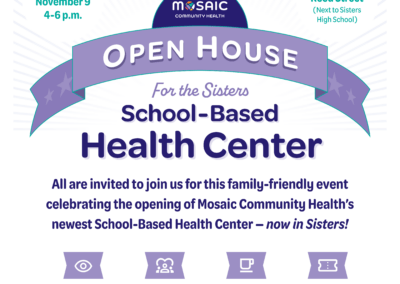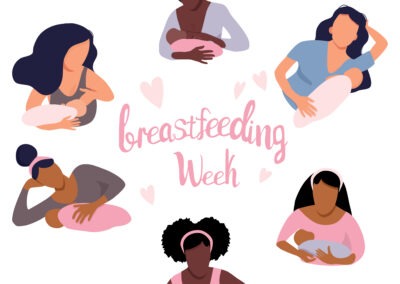
Dr. Jeff Bulkley recommends an active lifestyle to help prevent high blood pressure. In this photo he and his family enjoy a scenic hike together.
Dr. Jeff Bulkley recommends an active lifestyle to help prevent high blood pressure. In this photo he and his family enjoy a scenic hike together.
Common questions related to high blood pressure are addressed in this guest blog post by Jeff Bulkley, DO. Dr. Bulkley is an Internal Medicine physician at Mosaic’s Complex Care Center.
Q: What is high blood pressure?
Our arteries carry blood, rich in oxygen and nutrients, from the heart to other organs and parts of the body. The pressure on the inner walls of the body’s arteries is referred to as “blood pressure.”
An individual’s blood pressure is defined by two measurements, the systolic (measuring the pressure when the heart contracts) and the diastolic (measuring pressure between heart beats). Blood pressure is reported as the systolic pressure over diastolic pressure.
According to the American Heart Association and American College of Cardiology, “high blood pressure” is defined as a blood pressure measurement greater than 130/80.
Q: Are high blood pressure and hypertension the same thing?
Yes, hypertension is the medical term.
Q: What are the symptoms of high blood pressure?
High blood pressure is often called the “silent killer” as it doesn’t usually cause symptoms by itself. However, when a patient develops complications, symptoms can appear.
For example, if hypertension leads to heart failure–which is a common scenario–a patient can develop symptoms of shortness of breath, chest pain and swelling in the legs.
Q: Is this disease common?
Yes, it is estimated that over 45% of Americans over the age of 20 suffer from hypertension. And many of these people don’t know they even have it. It can run in families, or some people may have it with no family history of the disease. Hypertension occurs at higher rates in blacks, Asians and Hispanic Americans. And risk for the disease increases with age.
If left untreated, hypertension increases the strain on the heart and arteries, causing organ damage. Additionally, it increases the risk of heart failure, heart attack, stroke, kidney failure, vision problems and sexual dysfunction.
Other medical problems, such as diabetes and high cholesterol as well as tobacco use, can increase your risk for complications when combined with hypertension.
Q: How can I find out what my blood pressure level is?
You can find out what your blood pressure is by using a validated blood pressure cuff to measure it. Your doctor’s office or local pharmacy will have appropriate cuffs to take your measurement. It is important to check your blood pressure regularly. It can change and increase over time, depending on your environment and as you age.
Q: What can be done to prevent this disease?
The best way to prevent hypertension is to eat healthy and exercise regularly.
- Follow a diet rich in plant-based foods, and eat plenty of vegetables, fruits, nuts and legumes.
- Limit dark meats, simple sugars and processed foods.
- Watch the amount of salt (sodium) that you consume, aim for less than 2000 mg of sodium daily.
- Regular exercise is important. Aim for getting your heart rate up for at least 30 minutes on most days, at least 150 minutes per week.
Q: How can this disease be treated?
The best first step in treating hypertension is to adopt a healthy diet and incorporate regular exercise if you haven’t done so already. In addition, there are a number of relatively safe medications that can be taken regularly to get your blood pressure into a safer range. Remember, treating your high blood pressure with medication (if your doctor recommends it) can help prolong your life and prevent serious medical problems.
Q: Are my blood pressure medications safe to continue taking if I am at risk for or have COVID-19?
Yes! There have been multiple studies recently suggesting that ACE inhibitors and ARBs (2 common categories of blood pressure medications that were originally thought to be unsafe in patients infected with the novel coronavirus) are safe and do not impose additional risk to those with SARS-COV2, the novel coronavirus that causes COVID-19.
Q: Where can I find more information?
Please reach out to your healthcare provider if you have questions or concerns about high blood pressure. Some online resources you can visit include:



0 Comments